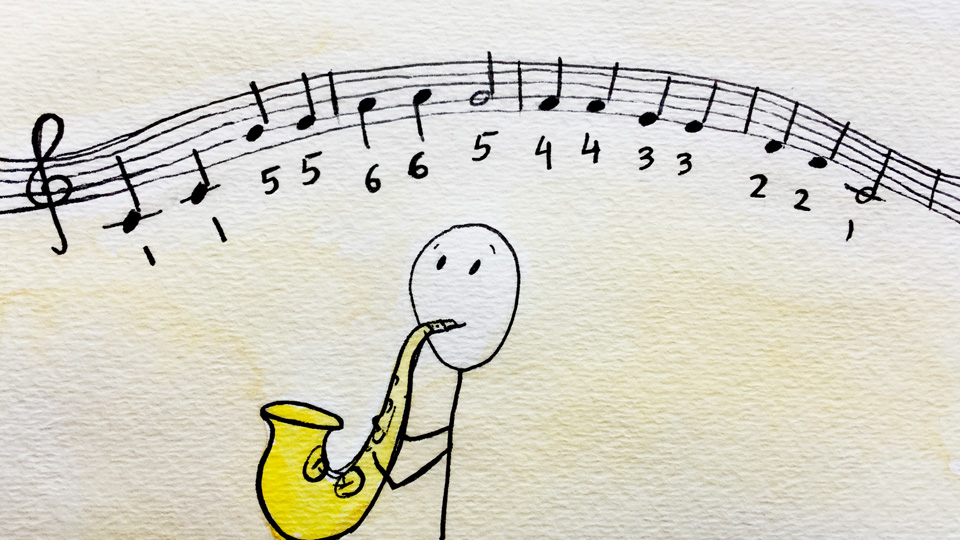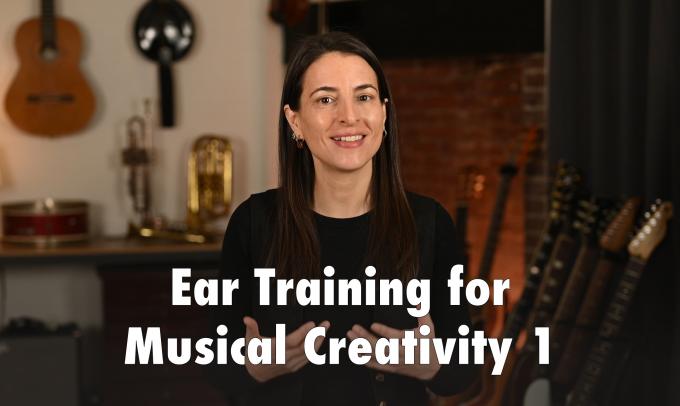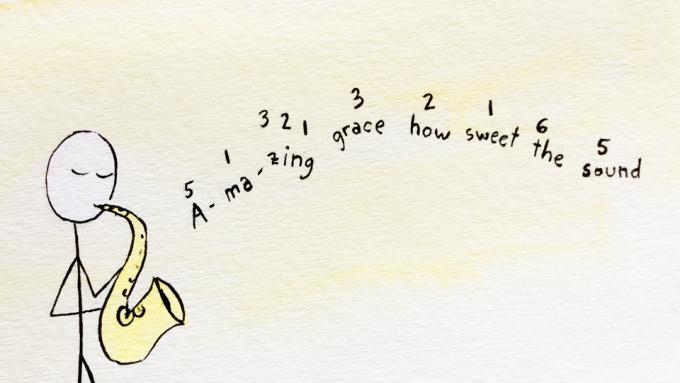Hey David,
I'm currently singing and playing a lot of short tunes like nursery rhymes, hymns, etc. The way I do it is that I will play a tune only once and try to make my best attempt at playing the correct notes the very first time. I don't play the same song over and over again lest I should learn the notes by heart. Instead I keep jumping from tune to tune.
What I've noticed is that my ability to know where the notes are is gradually improving. Although I'm not yet able to sing the tonal numbers, when I play the song I often know where to go for the right notes. I'm not 100% there but I can feel improvement, which is encouraging. Is this approach a good one?
Thanks,
Mike
David's response:
Hi Mike,
It's GREAT that you are singing nursery rhymes and hymns! That's really the best place to learn because you have all these beautiful melodies that are presented in a very clear way. Each song usually has only a couple of very special moments, so these songs are almost like lessons that were invented to teach you the sounds of our musical system. So bravo for doing that! I can't think of a more powerful foundation for really understanding how music works.
But what we need to do is take each melody a little more seriously and really analyze it. We need to actually LEARN those beautiful lessons that each of these songs has to teach us. That means identifying every single note in the melody and writing it out in tonal numbers. There's no room for guesswork here. Each note in the melody is just one of the seven notes of the major scale, so we need to find out exactly which notes they are.
It's this insistence upon clarity in the beginning that will give you a lifetime of musical enjoyment. Once you learn to recognize the seven notes of the major scale in these simple nursery rhymes, you'll also be able to hear them in all of the other music you listen to. This opens the door to playing literally thousands of songs, practically every song you've ever heard, entirely by ear just by remembering how it SOUNDS. This is an incredible ability that has huge implications for our creative possibilities as improvisers, so it's worth taking the time now to get clear about the seven sounds which make up the foundation of all our music.
Here's the exact process that I used to learn this skill myself:
1) Choose a song that is deeply ingrained in your mind. Start with simple music like Christmas carols and nursery rhymes because all the power lies in first mastering the most common sounds. But choose songs that have a special meaning to you, ideally songs that you have heard thousands of times. These sounds are so deeply etched into your memory that you can't possibly forget what they feel like. So all you have to do is learn which notes you've actually been enjoying all these years.
2) Write the melody out in tonal numbers. Remember, no guesswork. If you have to download the sheet music to make sure you've got the right notes, then go right ahead. We just need to know exactly which notes make up that beautiful melody that you've been hearing all your life. Identify the key of the music and write out the entire melody in tonal numbers as we do in our IFR tonal sketches.
3) Sing the melody every day in tonal numbers. Now you're going to use the tonal numbers as the new "lyrics" to the song. Sing the song with all your feeling and expressiveness, and really connect with the feeling that you have in your heart for this song. But instead of singing the words, sing the tonal numbers. In this way you'll be learning the true meaning of the tonal numbers, which is simply the place in the octave where we find each of these beautiful sounds.
4) Play the melody every day in a different key on your instrument. Note that this is the final step in a process that requires us to attain absolute clarity with respect to the tonal numbers. This is why I say there is no guessing involved. Because of the process you've gone through, now you never have to settle for feeling that you're merely "getting better" at finding the melody on your instrument. Because you've taken the time to truly study and appreciate the notes of the melody, and you've learned exactly which tonal numbers make up that melody, you can now play the melody perfectly in any key on your instrument.
5) Realize that it's not about learning the song. It's about learning to recognize the tonal numbers. The reason why it's worth giving so much time, love and attention to a simple nursery rhyme is because you're learning something vastly more powerful than just how to play one particular song. What you're really learning is the ability to recognize the notes of the major scale in the music all around you. Studying 20 songs deeply in this way will give you the ability to play 40,000 more off the top of your head. It's about learning to recognize the sounds of our musical culture, and nursery rhymes are the ideal place to make your first discoveries because the sounds are presented in such a clear and simple way.
I hope that this advice will inspire you to continue singing and enjoying those very simple nursery rhymes and hymns, and also to take them apart and look at each one more closely. You should know the tonal number for every single note that appears in those songs. This is a wonderful education and I think you will be amazed at how quickly this practice enables you to recognize the sounds in ALL the music you hear.
David


